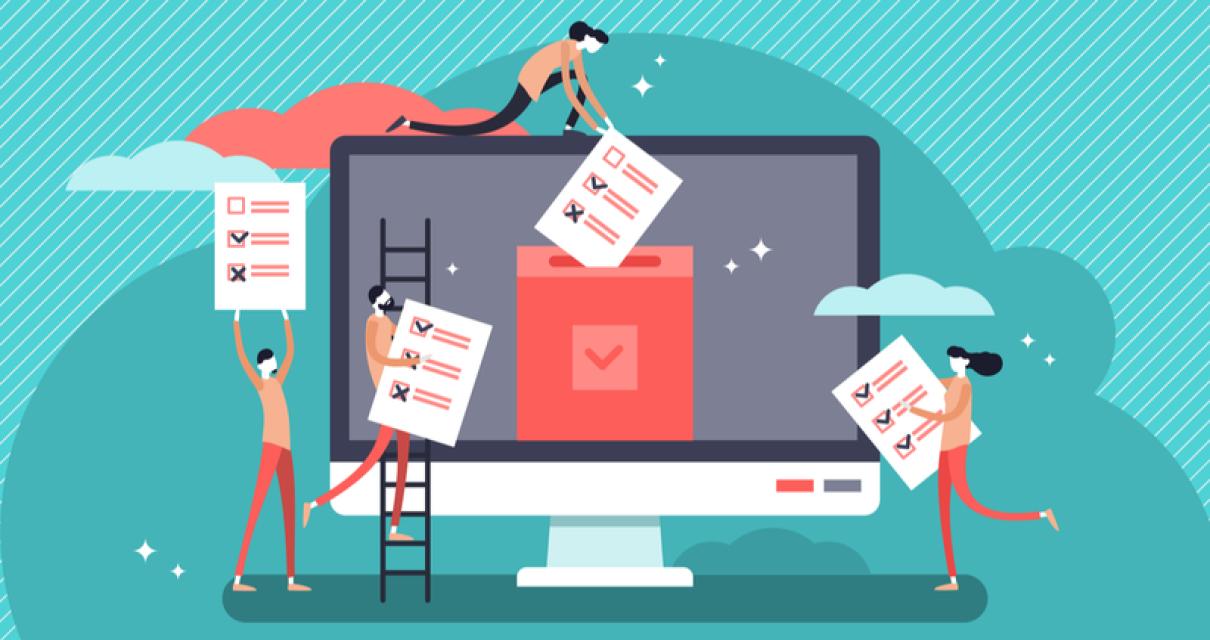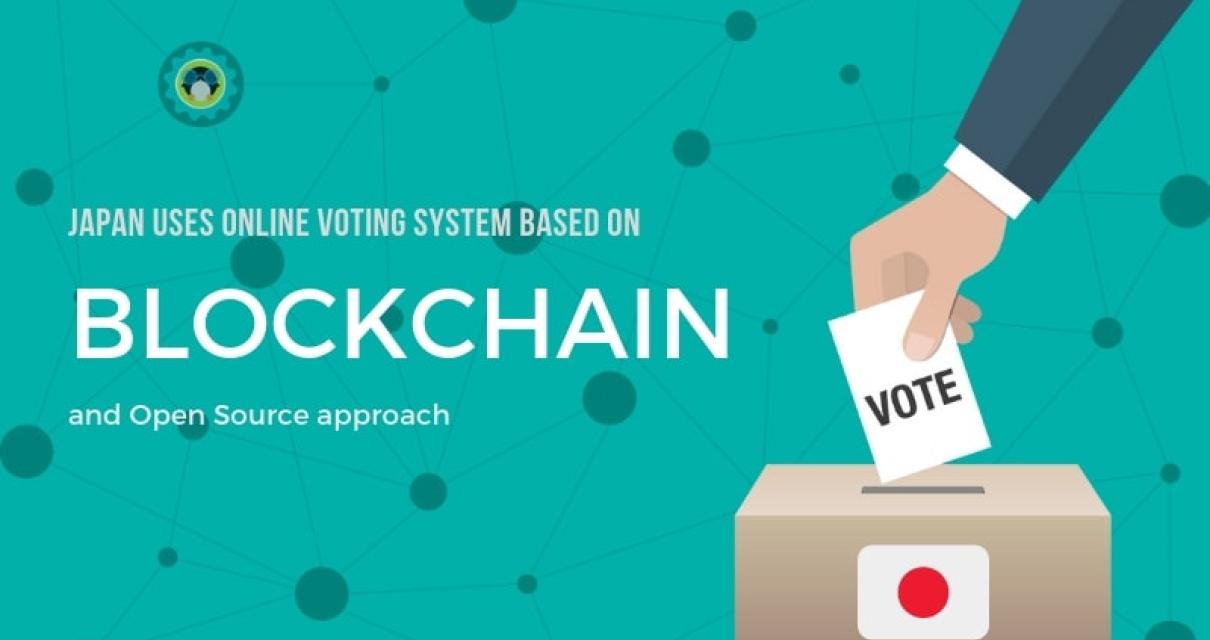How Blockchain Could Change Voting Forever
The use of blockchain technology in the voting process has the potential to change how elections are conducted and ballots are counted, forever.
The potential benefits of using blockchain in voting include transparency and security. Each vote would be recorded on a public blockchain, which would allow anyone to verify the accuracy of the vote. This would eliminate the possibility of fraud or manipulation, and would ensure that all votes are accurately counted.
Additionally, blockchain can provide a tamper-proof record of the vote, which would ensure that the results of the election are accurate. This would provide confidence in the democratic process, and would protect the rights of voters.
Overall, the use of blockchain in voting could revolutionize the way elections are conducted. It would provide transparency and security, as well as accuracy and trust. This could lead to a more democratic process, and greater confidence in the voting system.
The Benefits of Blockchain Voting
There are a number of benefits to using blockchain voting, including transparency, security, and accuracy.
Transparency: Blockchain voting provides a level of transparency not possible with traditional voting methods. Every vote is recorded on the blockchain, providing a permanent record of who voted what. This transparency makes it difficult for anyone to manipulate the results of a vote.
Security: Blockchain voting is highly secure because it uses cryptography to protect the identities of voters and the votes themselves. Furthermore, the blockchain is tamper-proof, meaning that it is impossible for anyone to change the votes or tamper with the records of a blockchain vote.
Accuracy: Because every vote is recorded on the blockchain, blockchain voting is highly accurate. This accuracy is especially important in election systems where there is potential for vote rigging. With blockchain voting, it is impossible for anyone to alter the results of a vote without being detected.
The Risks of Blockchain Voting
The risks associated with blockchain voting are many and varied, but some of the more common ones include:
1. Security Issues
One of the main risks of blockchain voting is that it can be insecure. This is because blockchain is a distributed system, which means that there is no central point of control. This makes it vulnerable to attacks from hackers, who could try to tamper with the results of the vote.
2. Tampering With the Results
Another major risk of blockchain voting is that it could be tampered with. This is because the data stored on the blockchain is decentralized, meaning that it is not subject to the control of any one entity. This means that someone could try to alter the results of a vote by tampering with the data stored on the blockchain.
3. Lack of Transparency
One of the main benefits of blockchain voting is that it is transparent. This means that everyone can view the data stored on the blockchain, which makes it easier to verify the results of a vote. However, this transparency also makes it possible for people to tamper with the data stored on the blockchain.
4. Fraudulent Voting
Another risk of blockchain voting is that it could be used to fraudulently vote. This is because blockchain is a distributed system, which means that votes cannot be verified easily. This means that it could be easy for people to vote fraudulently using blockchain voting systems.

The Pros and Cons of Blockchain Voting
There are many pros and cons to blockchain voting, depending on the specific use case.
Some potential pros of using blockchain for voting include:
- Transparency: Every vote is publicly visible, so voters can be sure that their voices are being heard.
- Authenticity: The votes are unalterable and recorded on a public ledger.
- Ease of Use: Blockchain voting systems are usually very easy to use, making it easy for voters to cast their ballots.
However, there are also some potential cons of using blockchain for voting:
- Cost: Blockchain voting systems can be expensive to set up and maintain, particularly if they need to be customized for each election.
- Security: As with any electronic voting system, blockchain voting systems can be susceptible to cyberattack.

Is Blockchain Voting the Future?
There is no one definitive answer to this question. While it is possible that blockchain voting may one day become the norm, there is still a lot of research and development needed to make this happen. For now, it appears that blockchain voting is still in its early stages and is not well-established enough to be used in large-scale elections.

What are the Advantages and Disadvantages of Blockchain Voting?
The main advantages of blockchain voting are that it is secure and transparent. It eliminates the need for a central authority to keep track of votes, which is a problem with traditional voting systems. Additionally, blockchain voting can be automated, which makes it easier and faster to carry out.
However, there are also some disadvantages to blockchain voting. For example, it is difficult to tamper with the results of a blockchain vote, which is an advantage over traditional voting systems. However, if someone does want to tamper with the results, they can do so relatively easily. Additionally, blockchain voting is not as widespread as traditional voting systems, so it may not be as popular in the long run.
What is Blockchain Voting and How Does it Work?
Blockchain voting is a method of voting using the blockchain technology. The blockchain is a public ledger of all cryptocurrency transactions. Each vote is recorded on the blockchain and can be verified by anyone. This makes it an efficient way to secure and track votes.
The blockchain voting process works like this: first, voters create an account on a voting platform. They then input their personal information, including their voting preferences. Next, they submit their vote. The voting platform then transfers the vote to the blockchain. Finally, the blockchain verifies the vote and records it on the ledger. This process ensures that votes are accurate and secure.
This technology has many benefits, including:
voters can trust the system because it is secure and transparent
voters can see how their vote has been used
it is easy to verify votes
it is cost effective
Blockchain voting is still in its early stages, so there are still some limitations to consider. For example, it is not yet possible to cast votes anonymously. Additionally, the technology is not available in all countries. However, as blockchain technology becomes more widespread, these limitations may eventually be resolved.
The Potential of Blockchain Voting
The potential of blockchain voting is immense. It could revolutionize the way we vote, by providing a secure and tamper-proof record of how we voted. This could make it easier for us to cast our ballots, and ensure that our votes are counted accurately.
There are a number of ways in which blockchain voting could be implemented. One option is to use blockchain technology to create a digital voting ledger. This would allow voters to securely record their votes, and verify that they have been counted correctly.
Another option is to use blockchain technology to create a voting system that is decentralized. This would mean that voting would be done using blockchain nodes, rather than centralized servers. This would make voting more secure, and reduce the risk of fraud or manipulation.
Overall, the potential of blockchain voting is immense. It could revolutionize the way we vote, by providing a secure and tamper-proof record of how we voted. This could make it easier for us to cast our ballots, and ensure that our votes are counted accurately.
How Blockchain Voting Could Transform Elections
There is a growing interest in blockchain technology in the world of elections. Blockchain voting could revolutionize how we vote, by creating a tamper-proof system that is more secure and efficient.
The benefits of blockchain voting include:
1. It is more secure: The blockchain technology is a secure system that can’t be hacked.
2. It is more efficient: Blockchain voting is more efficient because it eliminates the need for a third party to verify the results.
3. It is transparent: The results of the voting can be transparent, so everyone can see who won.
4. It is tamper-proof: The blockchain technology makes it difficult to tamper with the results of the voting.